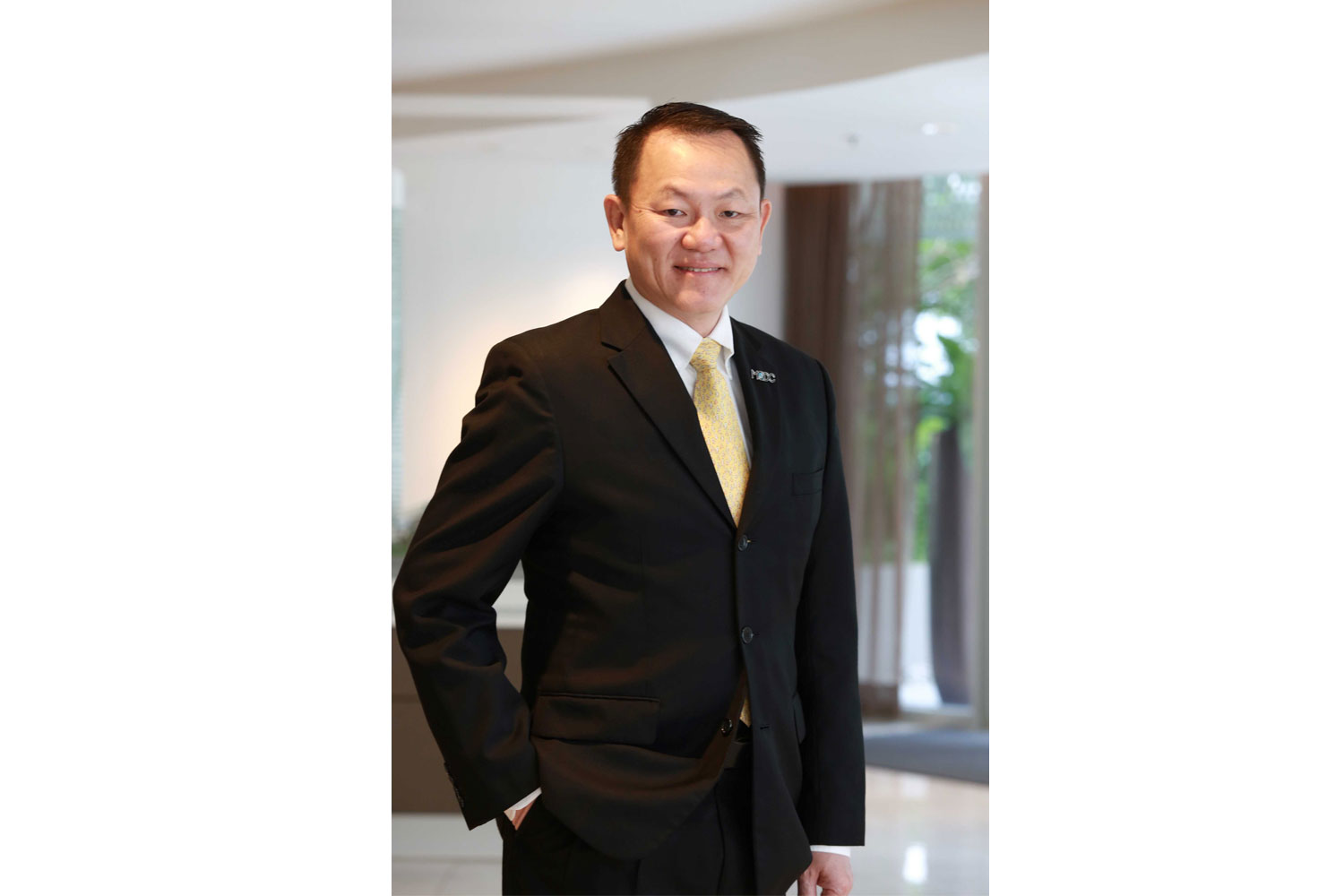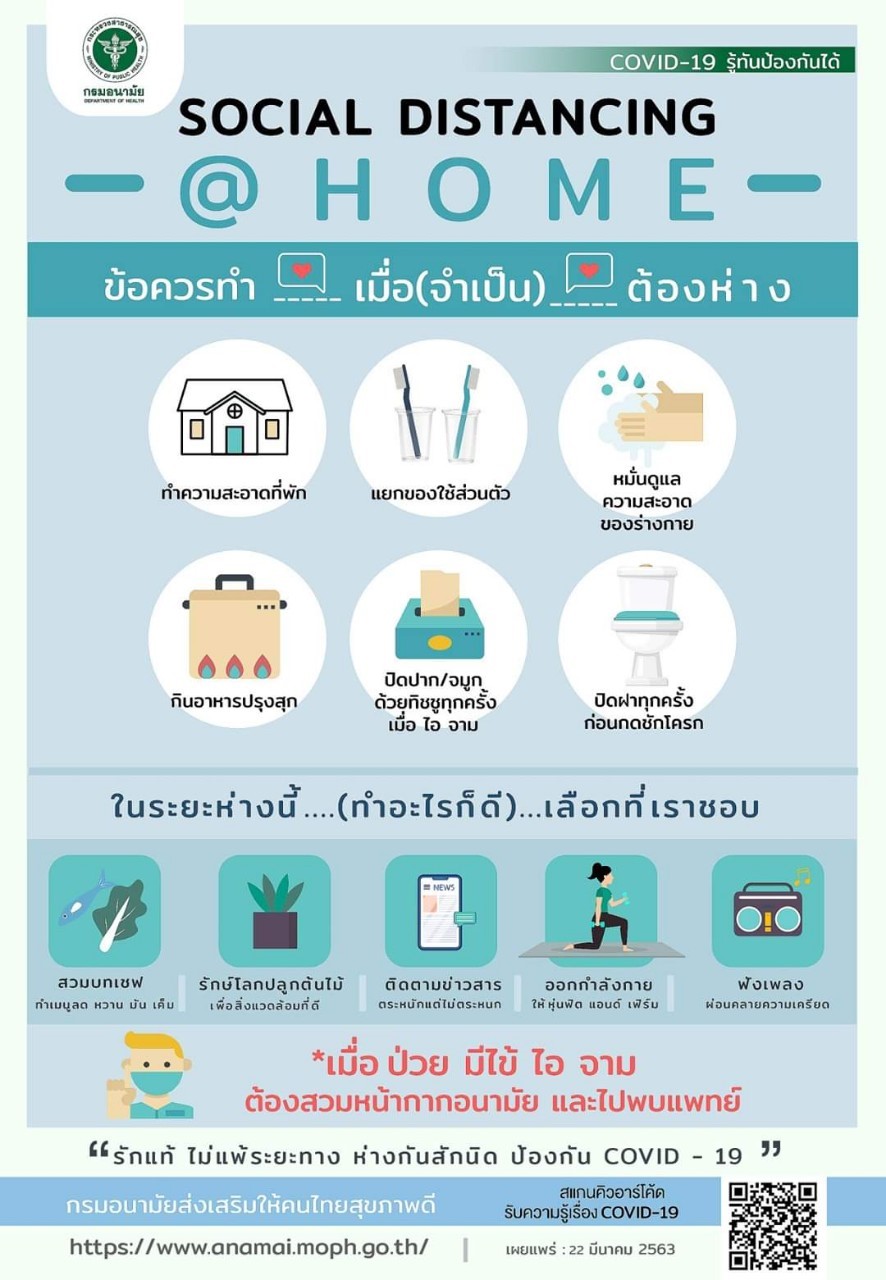
Creating a model for mixed-use lifestyle buildings with reduce, avoid, care measures
Magnolia Quality Development Corporation Limited (MQDC), one of Thailand's leading property developers, together with the Department of Health under the Ministry of Public Health and the Research & Innovation for Sustainability Center (RISC) presented information to prevent the spread of Coronarvirus 2019 (COVID-19) in an online presentation entitled “Department of Health Joins MQDC to Fight COVID-19”.
The three organisations have come together for the first time to address mixed-use buildings with 24-hour lifestyles, featuring condominiums, shops, malls, and offices. The presentation gave information on looking after common areas and high-risk locations. It covered procedures as well as the correct use of hygiene equipment according to academic principles and practices of the Department of Health, Ministry of Public Health, under the “Rule of 3” of “reduce, avoid, care”. The measures are designed to reduce risk and help protect the health of condominium residents, office workers and people in shops so they can live a normal life with the greatest safety through the Coronavirus 2019 (COVID-19) outbreak.
To share advice on applying the “Rule of 3” (to reduce, avoid, care) to address Coronavirus 2019 (COVID-19), the Department of Health is working with Dr. Kasem Wetchasuthanon, director of the Urban Health Development Institute; Mr. Keerin Chutumstid, President of the Property & Service Business Group of Magnolia Quality Development Corporation Limited (MQDC); Assoc. Prof. Dr. Singh Intrachooto, Chief Advisor of the Research & Innovation for Sustainability Center (RISC), and; Dr. Pattrarat Tannukit, an expert in preventing and controlling infection at RISC.

Mr. Keerin Chutumstid, President of the Property & Service Business Group of Magnolia Quality Development Corporation Limited (MQDC), spoke on measures for condominium residents and service areas: "Throughout the Coronavirus 2019 outbreak MQDC has always closely followed government policy. We are delighted that the Department of Health considers MQDC to be a leader in health in the property sector and has chosen MQDC and RISC to set standards for managing residences and condominiums for everyone’s safety. This collaborative standard provides an important starting point for future property development.
“In addition to this cooperation, we are happy to fully support government policies with the hope that all Thais can overcome this crisis safely together. We value the health and safety of residents, office workers, and shoppers, enjoying 24-hour lifestyles at over 30 projects where we oversee housing and offices, so everyone can live a normal life with the greatest security under our mission ‘For All Well-Being’ in line with the Department of Health's guidelines. Taking part in this collaboration, we have accelerated operations to focus more intensely. We also gained hygiene information from the Research & Innovation for Sustainability Center (RISC) to inform people who operate condominium juristic persons as well as service staff to provide a model for curbing transmission in mixed-use buildings.
“We focus on hygiene and safety to reduce risk in eight areas through a temperature screening system. We have increased the frequency of cleaning and disinfection and we have raised the number of points with alcohol-based gel for people to wash their hands thoroughly in all risk areas, including 1. Common areas of condominiums and office reception areas; 2. Entry and exit doors inside and on the exterior of the building; 3. Elevators 4. Shopping centre escalator handrails; 5. Co-working space for work and meetings; 6. Shared bathrooms within the building; 7. Swimming pool areas, sunbeds, and changing rooms; 8. Lockers and common dining areas in the food court. We have also given demonstrations on precautions to take care of yourself, such as washing hands in seven steps and using equipment to clean. We are providing workshops on making alcohol-based hand gels and fabric masks to promote the use of cloth masks for the general public and help reduce demand for masks, which must be reserved for medical personnel and patients. We are also advising on how to choose the right cleaning solution. In offices we have implemented a policy for working in line with government policies by encouraging employees to work from home for some departments to be a part in helping to reduce the spread of this epidemic," said Mr. Keerin.
Dr. Pattrarat Tannukit, an expert in preventing and controlling infection at the Research & Innovation for Sustainability Center (RISC), said: "RISC has implemented infection prevention measures in three main areas: people, buildings, and facilities and service. In sanitation practices every part of MQDC now has a thorough knowledge and understanding for accelerating the implementation of strict safety standards and controlling all areas for maximum security in three main areas. 1. Personnel must have training and follow guidelines for health screening residents as well as have protective wear for their work. They must be able to analyse results and make recommendations for decisions on safe operations in accordance with international standards regarding risk groups or patients to prevent or alleviate problems. 2. Buildings and premises must eliminate risk areas or close areas for ease of management. Measures should maintain appropriate distances. Ventilation systems should operate according to hygiene principles. Descriptive labels should keep building users informed. 3. Services should have equipment to assist in garbage collection and disposal. The risk of infection can be reduced through hygiene principles, including disinfection with alcohol-based hand gel and liquid soap in risk areas, for example."
